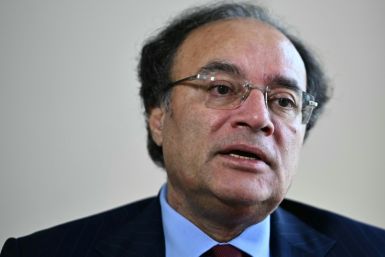Scientists believe gluten-free diets are ‘nonsense’; Eliminating gluten from diet may actually be detrimental

Gluten-free diets are a fad these days and they have taken hold of health fanatics worldwide. According to the reports, the gluten-free diet has surpassed all other searches on Google in the US, beating Palaeolithic diets, Atkins and South Beach. It has also surpassed searches for terms such as low-carb, low calorie, organic food and veganism among many others. However, scientists believe that the gluten-free diets are complete nonsense.
Books are being constantly written declaring gluten as the enemy. They consider gluten as the source of major health problems and that omitting gluten from diet makes people healthier and happier. Gluten-free diet has become so huge that it has become the most-searched on Google in the US. Yet there is little scientific evidence to support the claims.
Moreover, the gluten diet’s association with celiac disease has led people to draw illogical conclusions. Celiac disease occurs in about one percent of the population. Those suffering from the disease need to cut every trace of gluten out of their diet. However, normal people are also doing the same believing if barley, rye and wheat are harmful to people with celiac disease, they must also be harmful to everyone.
Scientists are saying that cutting gluten from everyday diet by normal people may actually prove to be harmful. Gluten-free diets generally lack fibre. Non-gluten containing flours are not fortified. People without celiac disease should have wheat flour as it is rich in iron and vitamins. Thus, gluten-free diets can make one vitamin-deficient.
Diets omitting gluten contain added sugars and fat and consuming them can lead to weight gain. It is also extremely inconvenient to follow a gluten-free diet as most food items such as beer, bread, pasta, wheat flour, candies, sushi, dietary supplements, sauces and seasonings contain gluten.
According to a report in Los Angeles Times by Peter H.R. Green, director of the Celiac Disease Center at Columbia University, and Rory Jones, adjunct professor of Narrative Medicine at Barnard College, nutritionists and chemists even recommend gluten-free diets to reduce inflammation, treat fatigue and depression, prevent auto-immune diseases and also for autism.
None of these have any scientific basis. Green and Jones, who have authored the book “Gluten Exposed: The Science Behind the Hype,” also revealed that there is no concrete evidence that gluten-free diets increase energy output.
Yet, the gluten-free food industry is now a multi-billion dollar industry. People who have not benefitted from medicines and medical treatments are easily drawn towards the fad. To them, removing gluten from diet is an easy fix.





